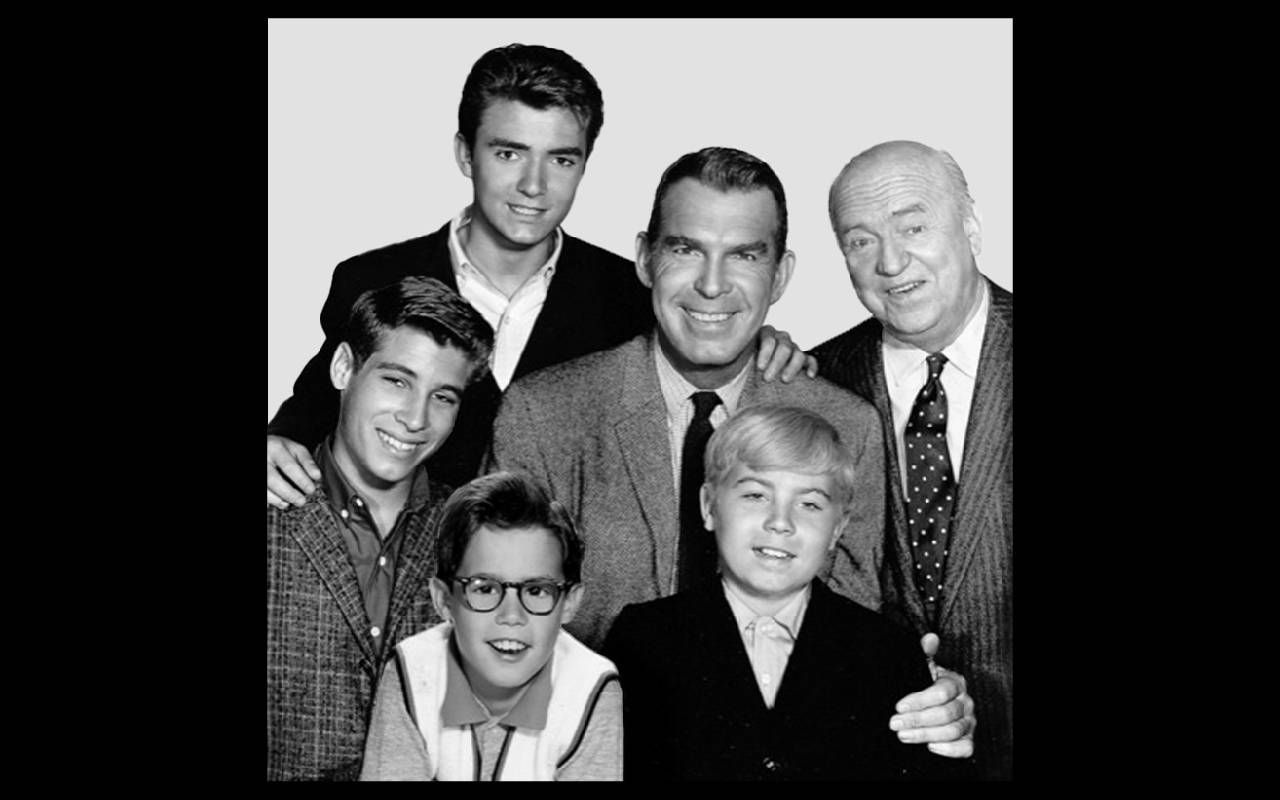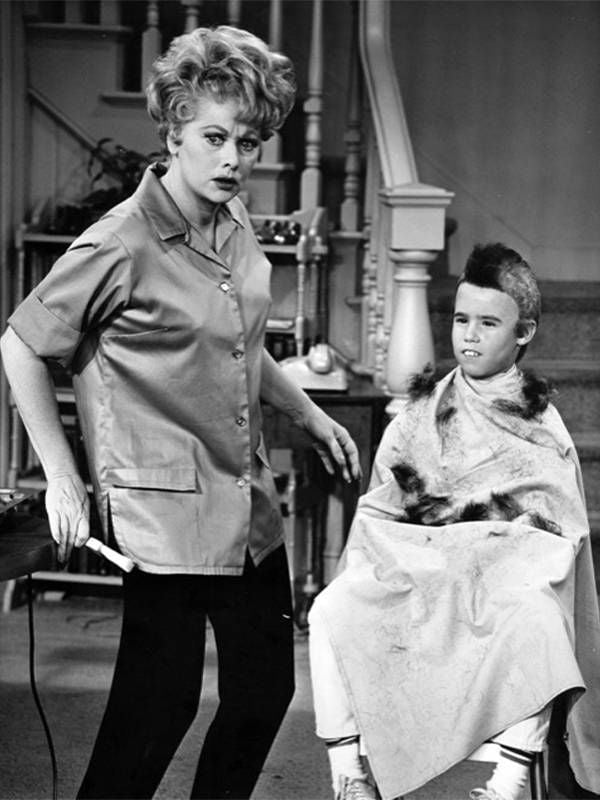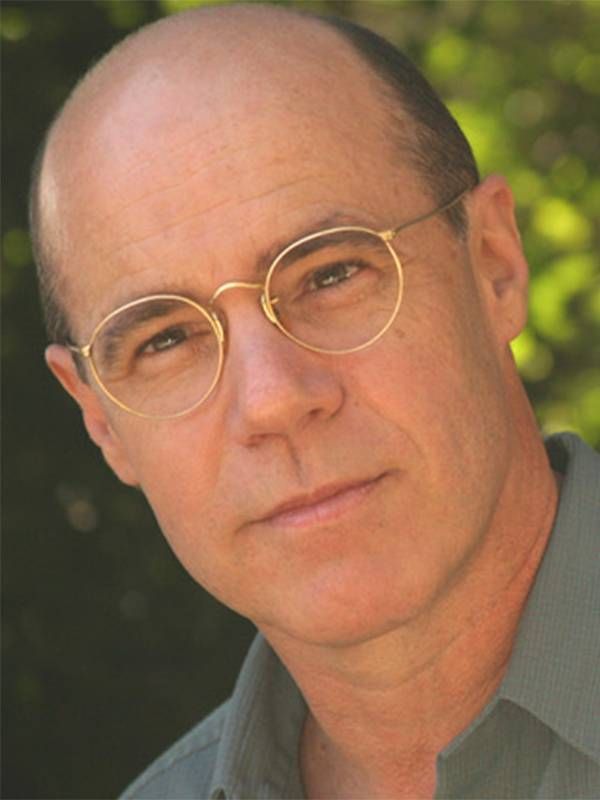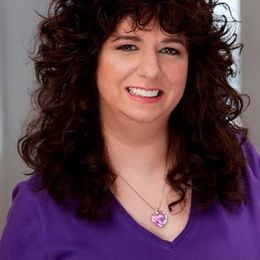Barry Livingston: More Than Just Ernie Douglas on 'My Three Sons'
He talks about being a journeyman actor, his movie with Paul Newman and asking Adam Sandler for a part in a film
Although he's widely known for playing Ernie Douglas on "My Three Sons," Barry Livingston has been a working actor his entire life
During a Zoom call with Livingston, it's easy to see why he's so likable. When he smiles or laughs, you get a glimpse — just for a few seconds — of that little boy whose smile lit up TV screens decades ago.

We caught up with Livingston, 68, to talk about his success in going from a child actor to an acting adult, what he loves about acting and the roles he's turned down.
What follows is our interview, edited for length and clarity.
Next Avenue: Barry, you're one of the few actors who has made it from acting as a child and kept going as an adult. How did you make that happen?
Barry Livingston: You know, it's a question I've had many opportunities to ponder. In private and publicly, people always ask me that. I said something not too long ago that sort of summed up the way I felt about it — I rejected everyone's rejection. I mean, if I was being rejected, I rejected that idea, and I never lost faith that I had talent, and I tried to cultivate it and educate myself and keep a positive spirit. Again, some of it is luck, but luck is opportunity plus preparation.
"Obviously, the very first phase for me was the child actor and being the kind of prototype nerd — the kid next door with buck teeth, glasses and a bowl haircut."
I felt like I had more to give, and I enjoyed what I did. I enjoy acting and the social activities that go with it. I just was like a dog with a bone. I wasn't ready to let it go yet.
I get it. Throughout my writing career, I've had to reinvent what I do. I'm still who I am. I have the same voice in my writing. But it's persistence, I think.
You said one word, which is reinvent yourself; you have to reestablish your identity at different stages of your life and career. Obviously, the very first phase for me was the child actor and being the kind of prototype nerd — the kid next door with buck teeth, glasses and a bowl haircut. In my late teens and early twenties, I was no longer that kid and I had to be just a young man going to college.
And that's the kind of roles that I played. I was lucky to get some things that were not quite the type that I was. I was playing drug dealers and runaways in the episodic shows of the era: "Ironside," "The Streets of San Francisco" and "Police Woman." I was fortunate that I was getting roles that could show that I had more to offer than just being the goofy kid next door.
Then you get into your thirties, and suddenly I lost my hair, which turned out to be a good thing because it sort of created a whole new identity as I somehow fit into the cliché of the accountant, the doctor, the therapist. I was able to present myself to the casting and producers as, visually, the kind of guy who is in the real world. I had the ability as an actor to pull off whatever was required.
That's reinventing yourself, never relying on your past. I've had some help along the way from producer friends and people who have had faith in me — casting people, certainly.
I've been fortunate in the last 20, 25, 30 years and certainly in the last four or five — ten — years to work extensively in television and film. Kudos to those people that have been my friends for all those years.
So they're not just pulling you in because "He's my friend"?
No. [Laughs] Nobody does that.

The thought that always goes through my mind when I audition for things is I want to make this person that stepped up to the plate, and was my champion, look good. I want to get the job, too, but it's not far from my mind not just to get the role, but to make sure this friend of mine is looking like they made the right decision to bring me in.
Over your career, were there any roles that you turned down that you regretted?
No. I don't think I've ever turned anything down no matter how goofy or weird it might have seemed. [Laughs] I think either that's a good thing or a bad thing. I don't know. But I've always thought that it's a way to meet new people. Granted, I've been in Academy Award winning movies, and I've been in some that have been turkeys. So, you take your best shot, and it's a day's work.
I've always thought of myself as a journeyman actor, a character actor, and I don't have the luxury of being a megastar — like Brad Pitt or Robert Downey Jr.— looking at a script and going, well, I don't think so. I've done a lot of things that I didn't think were the best that I've ever done, but nonetheless, I tried to be the best that I can be in that particular role and hopefully elevate the film in some way.
But you know, I don't have that luxury of saying no to anything.
Have you had any favorite roles?
Recently I did a film called "Notorious Nick." It was a great experience, a great story about a guy who was an underdog. He is an MMA fighter, Nick Newell, and it's his life story starting from his time in high school. He was born with a congenital defect. He only had one working arm, but he had a dream to get into the world of Mixed Martial Arts with one arm. That's not a very wise thing to do, right?
I played his wrestling coach in high school who saw his potential as a competitor because he had a heart like a lion. His life kind of progressed beyond that, and he decided he wanted to try to do MMA but clearly nobody wanted to handle him and represent him. So, he came back to me, his teacher in high school. I said, "Well, I don't know anything about that world, but I know you're a competitor." It's a great story. Kind of a "Rocky"-esque story. Great role for me.
Again, it was a part that I wasn't even sure why I was cast in it. I thought, "Really? They want me to be this guy who knows all about wrestling and show these guys these physical moves?" [Laughs.] I had to learn a bunch of stuff. It was really a lot of fun, and I believe it's the best work I've ever done in a very great little movie that you can find now on Amazon, Vudu and DirecTV and a lot of other places.
Let's talk a little bit about your character on "Bosch" because you played Gary Potter for a number of years. What did you like about playing him?
"It was a great opportunity for me to do a different kind of character. Although I've played my share of doctors and things like that over the years."
I liked the series and the tone of the show. It has a kind of gritty vibe to it, and I just liked the non-melodramatic aspect of the show. My character is a medical examiner. So, it's not for the faint of heart. That kind of job is pretty gruesome, but nonetheless, you know, it's a character, and it was just great to work with Titus Welliver who plays Harry Bosch.
We met while we were doing "Argo," the Ben Affleck film. He was a great guy and he turned out to be a huge fan of "My Three Sons," which is funny. He's a tough guy, but he just was enamored with the idea I was on that show, which is great. You never know whether people are fond of that show or whether they thought it was goofy and silly and whatever.
That was cool. We've become friends. It was a great opportunity for me to do a different kind of character. Although I've played my share of doctors and things like that over the years.
You could be the accountant, doctor, therapist, dentist. Or the serial killer who's the regular guy ...
I could be the guy they're chasing, too. A lot of my uncles were doctors or lawyers. It's not inconceivable in a different time and space, I might have pursued one of those occupations.
Do you prefer doing drama or comedy or does it matter?
Doesn't matter. I mean, drama, the execution is different. And certainly, when you're doing comedy, there's much more of a concern about timing and keeping a certain kind of pace. But again, there are certain kinds of shows that require a different kind of pace. For the most part, it's all about the timing in doing comedy, particularly when doing a three-camera show. You're getting an immediate response, which is fun. I love doing theater. I love doing both.
You still do theater?
I did a play about four years ago called "Stella's Last J Date" here in Los Angeles, and I'm eagerly waiting for the next one if it comes around. I would jump at it because I really do love to do theater.
If you had the choice, what kind of role would you like to play? A serial killer?
I've never played a serial killer. In one of the "Hostel" movies, I did play one of the guys who takes one of the victims and tortures them, and that was an odd experience. I don't like to watch those movies. But to actually do it was kind of a gas — it was a little bit fun. I mean, I removed some guy's face. You know, it's hard not to be kind of silly and goofy when you're doing these things because it is so bizarre.
Do you still get people who say, "Oh my God, it's Ernie."
If the cat's out of the bag, they go, "Oh my God," because they do see something. The smile, the glasses, whatever. Then it becomes a kind of a very exciting moment. It's fun to kind of have that adulation and have that kind of respect and love for a show that's so iconic.
I'm saying this because I feel very confident in my having progressed beyond it. If I had no desire to continue in this business, or I wasn't able to, I might look back on that a little less fondly because then it would be like this big albatross. That said, you know, it hasn't seemed to be that much of an impediment.
You find people like Adam Sandler, when I did a movie called "Dickie Roberts: Former Child Star," which is just kind of a goofy little ending thing that got a bunch of old child stars together. One day, I was on the lot at Sony, and I was walking around and I knew where Adam's offices were, and I thought, "Well, I got to look for the next job," and I thought, well, I'll just drop in and thank him because his company produced "Dickie Roberts."
He kind of pulled up in his golf cart as I was walking up to his office, and he was just covered in sweat because he had been playing basketball. I went up and said, "Adam, I'm Barry Livingston. I was in 'Dickie Roberts.' I just want to thank you." [Livingston then does a good impression of Sandler] And he says, "Oh man, oh yeah, love that show. You were on 'My Three Sons.' We used to all sit there all the family all together, we'd all sit and watch the show. It was one of the highlights of our week."
I thought, "Wow, okay, this is turning out well." I said to him, "Hey man, I'd love to be in one of your movies, if it's possible." [Doing Adam Sandler impersonation again.] "Sure. Sure. I'll put you in one of my movies."
He kept that in his mind from that point on. For the next three or four years, he did maybe two or three movies, and every time a new movie of his was in preparation, I'd get a call to come in and read for something. But I never got the role.

Finally, "You Don't Mess with the Zohan" was being cast, and I got the call again. And lo and behold, they brought me in to do a cast reading. Adam came up behind me and he goes, "See, see. I told you I'd get you a good part. I got you a part in one of my movies."
That's the way it works sometimes in Hollywood — being proactive. And it was with one of the real true mensches of show business, Adam. He's beloved, and there's a good reason for it.
You do a good Adam Sandler. I can hear his voice.
That's my one impression I do. "Sure. Sure. I'll put you in my movies."
Tell me how Paul Newman helped you as a child actor by crawling into a TV.
It literally was the very first job I ever was cast in when I was four years old — a film called "Rally 'Round the Flag, Boys!" and it was a big movie at Fox, and his wife Joanne Woodward was in it. Paul just exploded as the biggest star in Hollywood. My brother Stan, who was Chip on "My Three Sons," was also cast. We were cast as their kids.
We were shooting a scene one day and Stan and I were sitting on the sofa and supposed to be watching a television show, a cartoon or something, and Paul, playing our dad, walks in the door and goes, "Hi boys!" and we just totally ignore him.
The thing we were required to do was just stare at the TV. Don't pay any attention to him. Don't even move a muscle. Just watch the TV. And so, we did it one or two times and the director was Leo McCarey, a famous director who directed "Duck Soup," that the Marx Brothers did.
Anyway, to him it looked like I wasn't watching TV because he thought I was looking off to the side. We did three, four, five, six times, and he was getting angrier and angrier with me because he thought I was just looking around the set. Paul Newman said, "Let's take this to a different angle or something. You got me walking in the door. You established the kids are watching TV. You don't need a close up. Let's do a close up of the kids. Get me a puppet, and I'll get into the television." The TV was just a big old box.
"In the camera it looked like I wasn't paying attention even though Paul Newman — the biggest star in the world — was waving at me with a hand puppet inside of a television."
Paul did climb into this giant old 1950s-style television that wasn't a real television. It was a big box. Anyway, he got in it waving at me with the puppet. What was happening was that my eyes were strained, and they were just starting to cross.
In the camera it looked like I wasn't paying attention even though Paul Newman — the biggest star in the world — was waving at me with a hand puppet inside of a television. It looked to the camera like I was looking way off to the left and then somebody thought oh, there's something's wrong with this kid's eyes. Maybe he's having a seizure or something.
So, they said we got to get this guy to a hospital, and they did. I went straight from the set to a hospital and the doctors checked me out and said, He's got an astigmatism and he's cross-eyed now, and he's going to need glasses."
A day or two later, I came back to the set with the glasses. They said, "We didn't cast this kid — Paul Newman's son having glasses. I don't think that's going to work." Lo and behold I was fired.
I was four. And I was literally gone. I literally was escorted off the lot. So, it was a real welcome to Hollywood. It's such a warm and fuzzy welcoming place. [Laughs.]
How long do you want to keep acting?
Ed Asner did it well into his nineties. I try to take care of myself, and I hope I'll still get opportunities because I'm kind of veering into the "grandpa" stage of life. I don't have any grandkids myself, but on screen the characters I'll fit are the dean or the old professor, the guy who's established the law firm. Those guys. The older, wise owls of the world. So, that's cool. I mean, I'm down for that. You know, that's all good.


